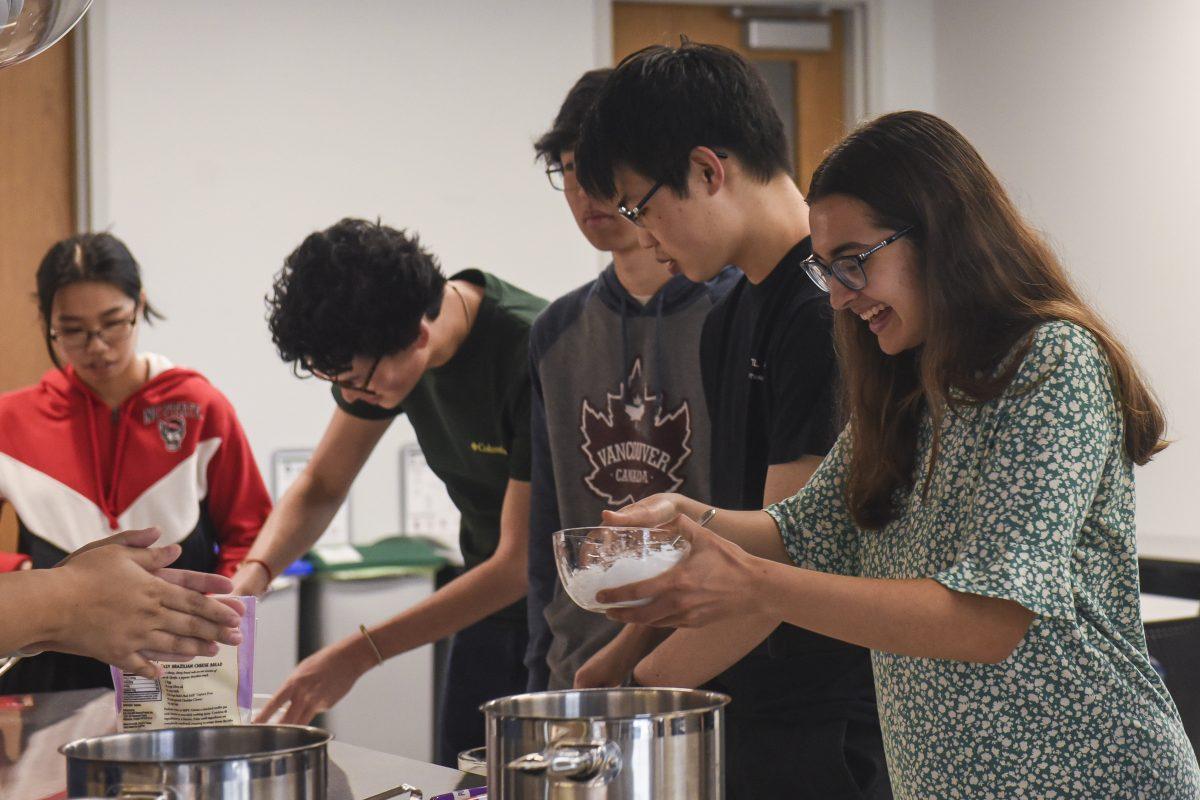Students gathered in Carmichael’s teaching kitchen Thursday to learn how to make boba, build community and celebrate Asian Pacific Islander South Asian American Heritage Month.
Roma Bustillos, a master’s student studying higher education administration, is the graduate assistant of Multicultural Student Affairs, which hosted the boba-making event.
Inspired by a TikTok, Bustillos came up with the idea of hosting a boba-making class to celebrate APISAA Heritage Month. She was part of teaching kitchen events for Latinx Heritage Month and said the students, along with herself, enjoyed the hands-on experience.
“I don’t come in as an expert with how to make anything; we learn as we go,” Bustillos said, adding that this was her first time making boba.
Originating in Taiwan during the 1980s, boba made its way across the globe into popular American culture. The first American boba shop, Fantasia Coffee & Tea, opened in the 1990s and since then has spread throughout the country. Chains such as Gong Cha and Kung Fu Tea have popped up, but there are also many locally owned tea shops.
The pearls in bubble tea are made of tapioca starch and water, which, when combined, produce a dough. Brown sugar is typically added for sweetening. The dough is rolled into balls and boiled, and after boiling, the boba is ready to be added into the consumer’s tea of choice.
Thursday’s event offered jasmine, green and black tea. Most participants opted to pair their tea with milk and brown sugar syrup to give the drink a sugary flavor. Lindsey Parisi, a clinician at NC State’s Counseling Center, took part in the workshop.
“I decided to attend the boba-making lesson because I wanted to learn a new skill and connect with others,” Parisi said. “Food, and in this case chewy tapioca, brings people together, and it was the perfect afternoon to de-stress from our hectic lives.”
Parisi said there was more significance to the event than simply making a drink, referencing the cultural impact it had on NC State.
“Events like these hosted by MSA and the Counseling Center are so important to have in a university because it creates safe spaces where students in the APISAA community can feel valued and respected,” Parisi said.
Parisi leads a Boba Chat and Craft in Hunt Library every Friday where students come together for stress relief and conversation, building legos, playing board games and participating in other fun crafts. These drop-in sessions are meant to provide the APISAA community with an opportunity to connect with one another.
Continuing to celebrate different cultures this month, MSA will be hosting an APISAA Heritage Month R ‘n’ R Feast on Thursday, April 11, to provide students with an outlet to discuss the impacts of stress on the APISAA community. Bustillos recommends MSA events to all students, especially those interested in meeting new people.
“Keep showing out even if you’re a little shy or if you’re in the mood to make friends because the student turnout is what continues to fuel this programming,” Bustillos said. “We love seeing the smiles on people’s faces afterwards.”
Though boba may not be practical to make in a college dorm, tea shops can be found all over Raleigh. Moge Tee, located on Hillsborough Street, is perfect for a grab-and-go drink, and the cute interior serves as a great study space. Iso Iso Ramen & Bar, a ramen restaurant and bar in the Village District, offers a selection of teas within walking distance as well.














